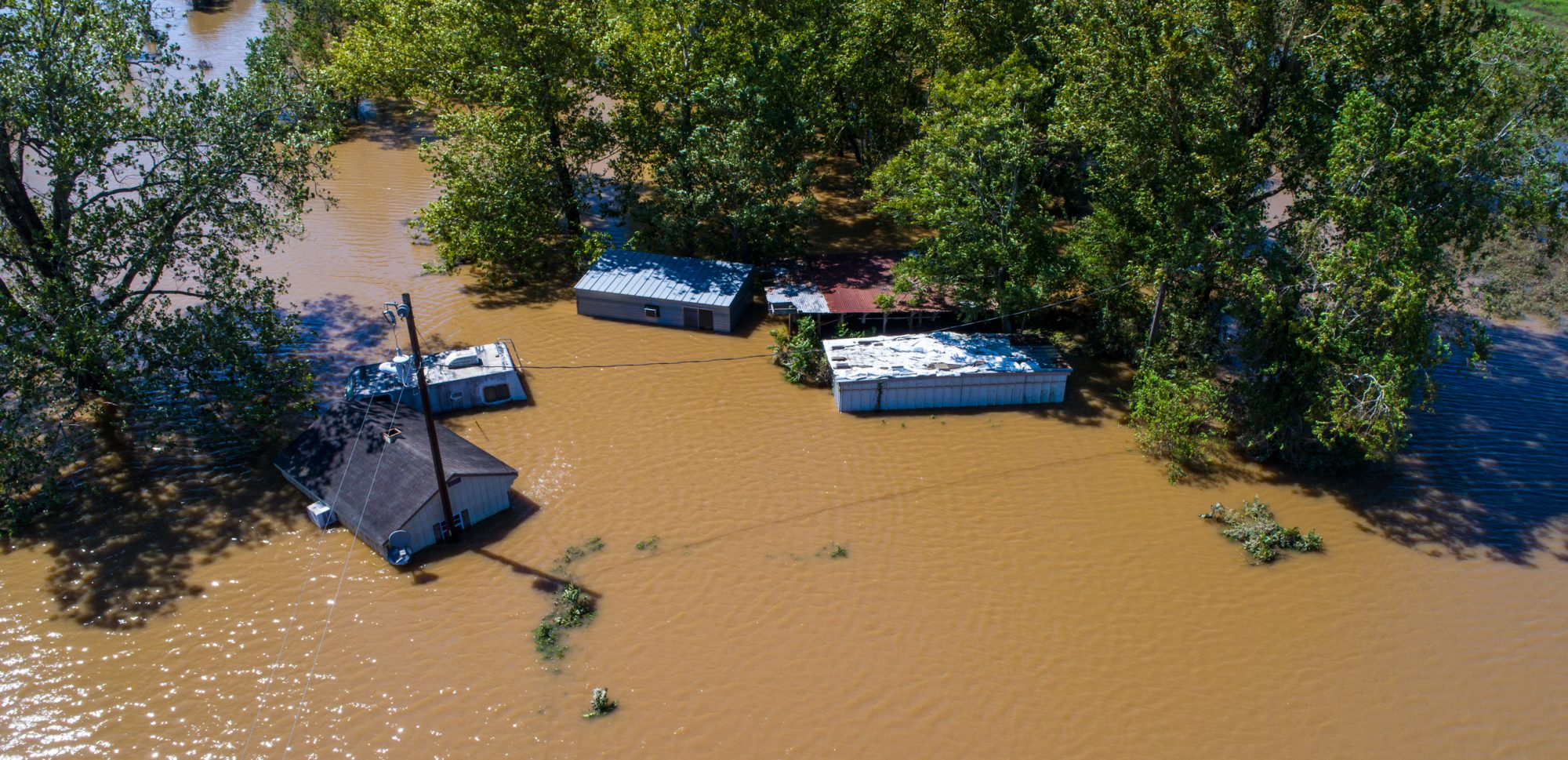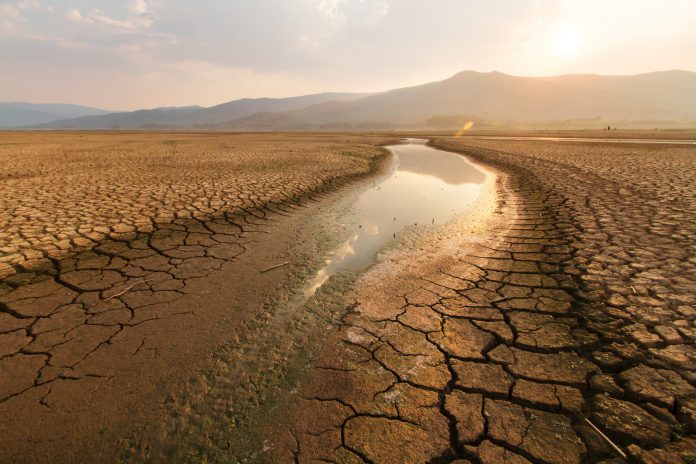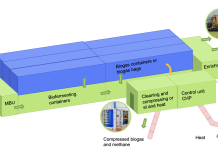Vasileios Latinos, Coordinator – Urban Resilience and Climate Adaptation, ICLEI Local Governments for Sustainability, European Secretariat, examines the local and regional government perspective of the adaption to climate change
Climate change is undeniably one of the biggest challenges of our time. The world has recently experienced extreme climate events and natural disasters co-occurring in various countries. As of October 2022, over 2,290 jurisdictions in more than 39 countries worldwide have declared a climate emergency; the populations covered by these jurisdictions amount to over 1 billion citizens.
Cities, regions & communities must work on climate adaptation & resilience
During the last couple of years, the extreme wildfires in Greece, Sardinia and Portugal and the deadly floods in Germany and the Netherlands have severely affected regions, particularly their vulnerable populations. By assessing and improving the resilience of cities and regions, local and regional governments can prepared for future crises and reduce their associated risks. In this framework, new tools and methodologies help cities, regions and communities to understand better, plan and develop strategies tailored to their needs, which will maximise their resilience to the impacts of climate change.
The European Commission launched the Mission for Adaptation to Climate Change to foster the development of innovative solutions, tools and methodologies that empower regions and communities to better plan and develop strategies tailored to their needs and fight climate hazards. The Mission for Adaptation to Climate Change and all other Missions are currently asking regions and cities to raise their resilience bar in various ways. One ongoing effort; after a preparatory and planning phase, European cities and regions are asked to take climate adaptation action quickly and implement concrete measures to increase their urban resilience. To this end, the European Commission explicitly committed – through the publication of the 2021 EU Strategy of Adaptation to Climate Change – to increase financial support to local and regional communities to accelerate the transition from planning to action in climate adaptation and resilience.
But is this really enough? And when we talk about building climate resilience, is this actually a much more complicated topic for cities and communities? According to the long-term vision established therein, Europe will be fully prepared to face the unavoidable impacts of climate change, which will continue to materialise even if carbon neutrality is reached by 2050. The new Strategy recognises that adaptation needs to be systemic and recognises the interdependency between a stable climate and the maintenance of ecosystem services such as biodiversity, food, clean air, drinking water and flood protection. To ensure these are preserved and enhanced, the Strategy emphasises that decisive actions should be taken to promote nature-based solutions in cities and regions across the Union. A mission in this area will help maximise the impact of the EU’s support to research and innovation and demonstrate its relevance for society and citizens. Its focus will be indeed on solutions and preparedness for the effects of climate change to protect lives and assets. It will include behavioural changes and social aspects by addressing new communities beyond the usual stakeholders to guide the societal transformation. To create a healthy environment to live and work in, local and regional governments must reconcile their development ambitions with adaptation to climate change and working with nature by integrating multi-functional, biodiverse and interconnected green and blue spaces in their cities.

What is the adaptation gap?
Both scale and dimension establish the urgency of the climate resilience challenge! Race to Resilience has been heavily promoted over the last year but still needs help to get signatories! We cannot deny that the Global Adaptation Programme or the Sustainable Development Goals per se, can only be achieved through local and regional adaptation and resilience action – that means, collectively, cities and regions are ‘too big to fail’ in their adaptation effort. On the other hand, cities and regions have limited means, capacity, and financial resources, and they do need to be capacitated. On the contrary, though, they are exposed to ‘diversity’, if not confusion, with different funding programmes and financing pipelines often following specific logics and requirements, not to mention all the labels that they are asked, from time to time, to live up to the ‘Sustainable City’, the ‘Resilient City’, the ‘Smart City’ – as one colleague that has been with the organisation for many years says: “Smart city is the only term that mayors understand and like, no one would like to lead a city that is not smart, because what does that make you?” To be more effective and impactful, we should follow the city’s or region’s demand side perspective. Consequently, we need to set up programmes more wisely, i.e. support the concept of an integrated urban resilience programme and align the requirements and approaches of the institutions offering technical and/or financial assistance.
Recent work within the REGILIENCE project (funded under the H2020 Programme of the European Union) shows that the European Union (EU) urges the acceleration of climate adaptation action to increase its resilience at the regional scale. The results have shown the main issues to consider when supporting regions in their transformational pathways. In particular, different layers of complexity have been studied, considering institutional, socio-cultural, financial and knowledge aspects of resilience. The study has demonstrated that all these aspects are strictly connected and should be analysed with a cross-cutting perspective. Interestingly, by analysing financial needs, the research has highlighted that economic resources are not a primary concern for European regions, which have seen a considerable increase in the financial opportunities to fight climate change in the last few years. However, the regions still need to be augmented with human resources and detailed guidance to work on the topic and cooperation and coordination to distribute and manage available funds.
Central needs that emerge from the collected data are, therefore, cross-level and across-sectoral cooperation and coordination. Local and regional authorities recognise the urgency of taking action to reduce the risk of – more and more frequent – disasters. However, this is impossible without a coordinated strategy involving local and national authorities while considering the different stakeholders’ ideas, needs and challenges for each of these levels. Regional representatives criticise the interface with national governments, which is vital in funding resilience-building processes. Time and space for this cooperation must be enabled, and supranational support could be needed in this respect.
Awareness raising is also important to ensure that a resilient transition is socially accepted and sustained. Regions ask for role models to look at and develop a just and resilient transition simultaneously. More specifically, the most tourist-intensive regions need to articulate complex awareness-raising action involving visitors, who may be particularly vulnerable to extreme climate events. In this respect, the accessibility of data is a critical enabler in informing multi-level strategies to build regional resilience. Together with data, institutions must find solutions to increase the capacity of administrative staff to apply the available knowledge and take climate action. From a content perspective, water management is the primary concern when dealing with disasters. Water is central in disaster risk reduction, from flooding to droughts, coastal erosion and wildfire management. There is an increased need for support to learn quickly how to deal with this limited resource, the need for integrated disaster management approaches and tools to handle crisis management and recovery.
To summarise, the financial resources dedicated to tackling climate change in Europe need to be supported by a consolidated approach to horizontal and vertical cooperation and coordination between and within any relevant public department and other stakeholders. In particular, public authorities should increase human capacity and promote training that enables quicker and more decisive climate action. In addition, and not to forget, citizens must play a key role in the process that will succeed only if cities, regions and communities are aware of climate risks and interested in fighting for a more resilient future.

What do cities and regions need to do beyond COP27 for a climate resilient 2030?
There are several activities that cities, regions and communities can do post-COP27 to make sure that climate adaptation and urban resilience are back for good and at the centre of the international discourse:
• Agree on a clear vision for climate resilient, but also make clear what the implementation challenges are to take further the goals that the Paris Agreement in 2015 set;
• Prioritise multi-level governance actions and specifically emphasise the interplay between the local and regional levels;
• Raise their voices about the need to act now, build partnerships with key institutions, reach out to strategic partners that are thinking out-of-the-box and engage with bottom-up initiatives.
Integration of topics and agendas around climate resilience can bring:
1. Even higher policy impact across the EU and globally by better implementation of recent or immediately upcoming key policies (e.g. EU Adaptation Strategy, EU Green Deal, EU Biodiversity Strategy 2030, Climate Law, Nature Restoration Law, Zero-Pollution-Action Plan, Global Post-2020 Biodiversity Framework), initiatives (e.g. Green City Accord, Covenant of Mayors for Climate and Energy, Climate Pact, EU Taxonomy, EU Missions in
Horizon Europe on Oceans, Climate Neutrality or Soil Health);
2. Convince all EU policy sectors (including their public and business decision-makers and practitioners) that adaptation action matters and work for their goals and purposes as well;
3. Support highly vulnerable and low-capacity regions and communities that, for various reasons, have not yet engaged in large consortia applying for Mission-related projects and;
4. Provide a space for strategic and advocacy work at the EU and global level, necessary to ensure adaptation and resilience-building opportunities, as well as needs, are voiced in and worked on by the European Commission and globally.
ICLEI worldwide, sustainable development & the Mannheim message/Malmö commitment and the SURGe initiative
ICLEI: Local Governments for Sustainability (founded in 1990) is committed to sustainable development. The organisation works globally with more than 2,500 local governments via 22 offices worldwide. We are convinced that sustainable development is the only model for development in the ‘urban 21st century’: Local action drives global change, and the leadership of local and regional governments can make a significant difference in addressing complex environmental, economic and social challenges.
The Malmö Commitment was launched on 12th May 2022 during the high-level dialogue ‘Putting people at the heart of local sustainable development: The Malmö Commitment’ at The Malmö Summit. This session explored the processes needed for ensuring a green, just and fair transition with examples of rights-based approaches and implementation of inclusive perspectives from cities, policymakers, and other partners. But what is the Malmö Commitment?
The Malmö Commitment positions local and regional governments at the centre of the global response to today’s challenges by encouraging sustainable approaches, innovation, adaptability, participation, and inclusiveness in policymaking to tackle the current climate emergency and by embedding social equity at the core of their local, sustainable development. It gathers local and regional governments that commit to this urban transformation following a four-step process:
• Identify the challenges.
• Monitor social equity indicators.
• Report the progress and enhance the effort taken through neighbouring communities.
The Malmö Commitment addresses the fact that the climate and nature crises have deeply intertwined social components. Without actively acknowledging and addressing these social components in climate and nature action planning, sustainability solutions can inadvertently further exacerbate existing social inequities in communities. The Malmö commitment ensures that cities, towns and regions acknowledge these social dimensions by incorporating intersectional perspectives in their sustainability policies.
Why should any local or regional government adopt the Malmö Commitment, though? For many reasons: they will have the opportunity to showcase the commitment of government to develop safe, inclusive, resilient communities for all; they will become part of a community of like-minded local and regional governments working on equity policies within the sustainability sphere; gain access to tools, resources and good practice which support equitable local, sustainable development planning and implementation, and they will share their knowledge and collaborate with other committed local and regional governments addressing similar challenges and dedicated to promoting equity in their cities, towns and regions.
ICLEI, following COP27, facilitates the initiative ‘Sustainable Urban Resilience for the next Generation (SURGe)’, which is a proposal by the COP27 Presidency in collaboration with UN-Habitat, with one overarching objective: to enhance and accelerate local and urban climate action through multi-level governance, engagement and delivery. The vision of the initiative for 2030 is clear: Effective multi-level governance to
transform cities to be healthy, sustainable, just, inclusive, low-emission and resilient urban systems to enable a better urban future for all, while its key actions include: strengthening the implementation of the climate agenda in and with cities; unlocking urban climate finance, building capacity; accelerating technology and innovation in cities and communities and ensuring equity and social justice!
ICLEI continually supports its Members to raise their resilience bar, and we have been a pioneer in the field for over a decade. For example, from 2010 to 2019, it ran the Resilience Cities Congress, a dedicated annual event bringing together resilience and local governments on a world stage for the first time. ICLEI is a founding partner of the UNDRR’s Making Cities Resilient 2030 (MCR2030) and supports cities to assess their vulnerabilities and needs to develop their integrated climate action plan and local capacities and improve climate reporting.
Together with CDP, ICLEI has long advocated for local and regional governments to report their climate data to track, manage, and fulfil their climate goals, but also to be able to attract investment. The CDP-ICLEI Track is a platform that goes one step further, enabling the reporting of indicators that evaluate progress in the realms of equity, resilience, and economic vitality, hence becoming a valuable tool to plan for a sustainable, equitable, and resilient urban transformation. This variety of data can also be used to generate buy-in from relevant stakeholders and communities and identify economic opportunities.
Contributors: Jole Lutzu (Officer, Urban Resilience and Climate Adaptation, ICLEI Local Governments for Sustainability, European Secretariat), Luca Costantino Arbau (Officer, Urban Resilience and Climate Adaptation, ICLEI Local Governments for Sustainability, European Secretariat), Erica Manuelli (Junior Officer, Urban Resilience and Climate Adaptation, ICLEI Local Governments for Sustainability, European Secretariat), Holger Robrecht (Deputy Regional Director, Urban Resilience and Climate Adaptation, ICLEI Local Governments for Sustainability, European Secretariat).
Contributor Details
Editor's Recommended Articles
-
Must Read >> COP27: Urban transformation and sustainable cities
-
Must Read >> COP27: Africa’s agenda for an energy transition
















